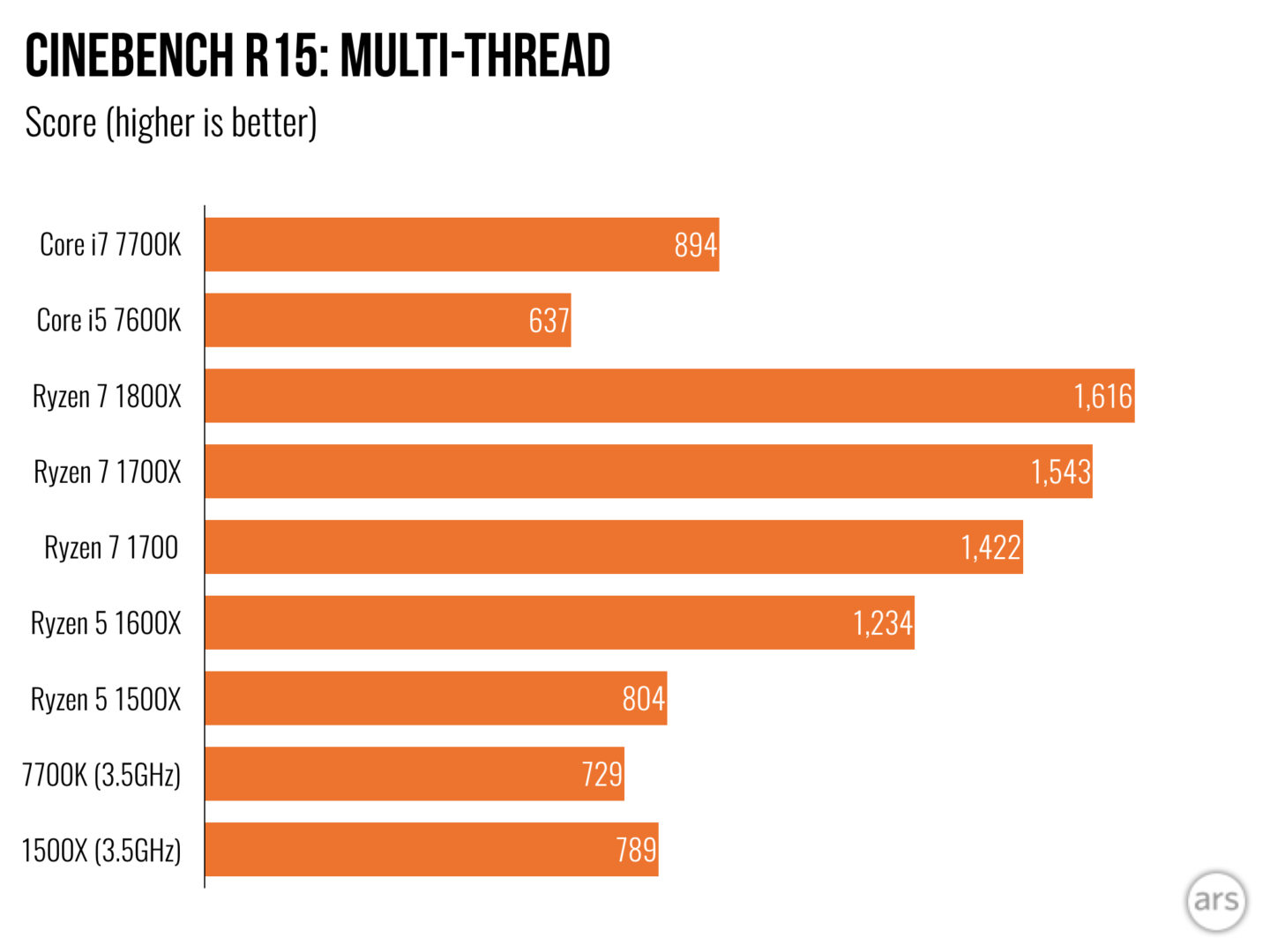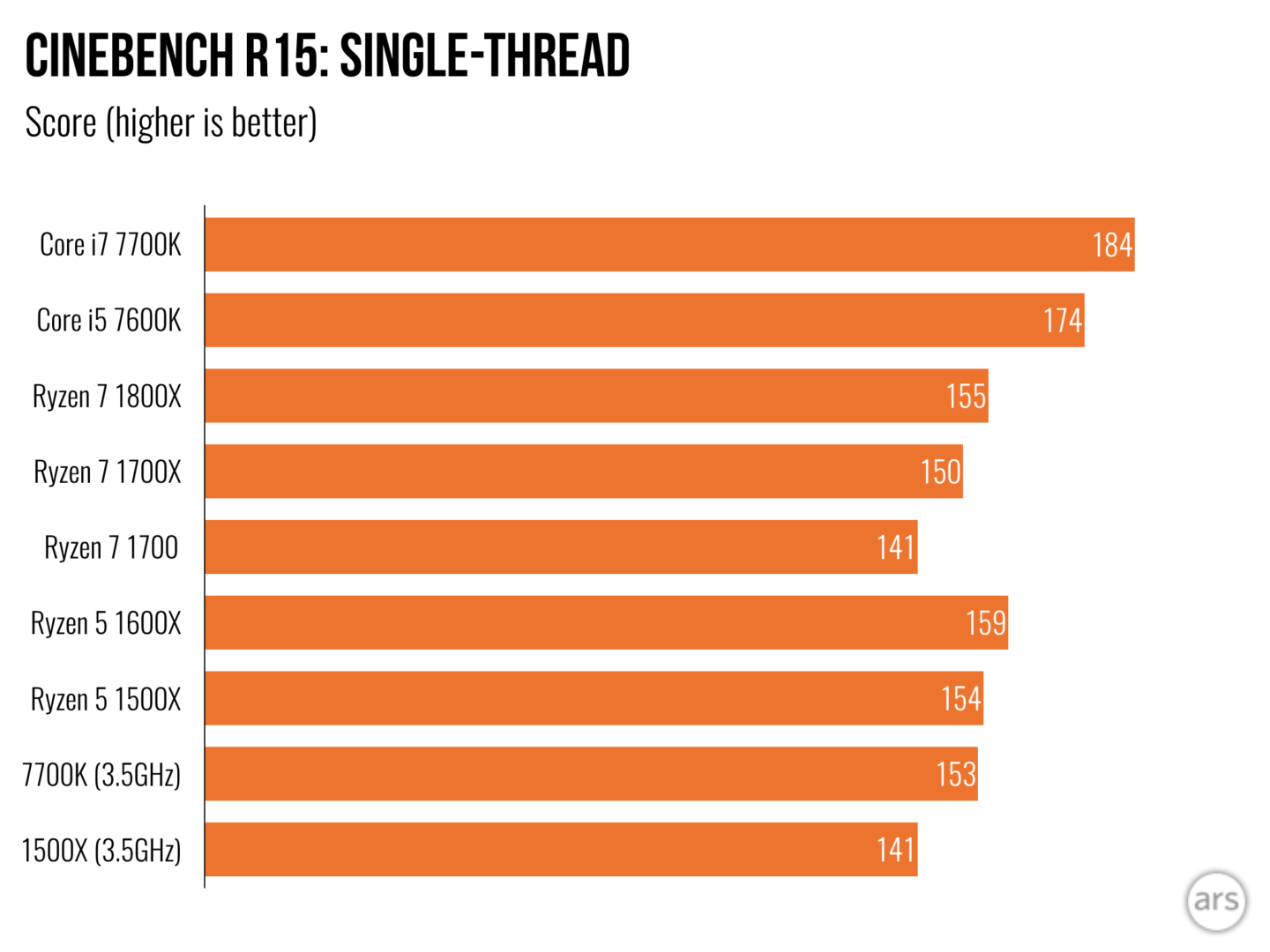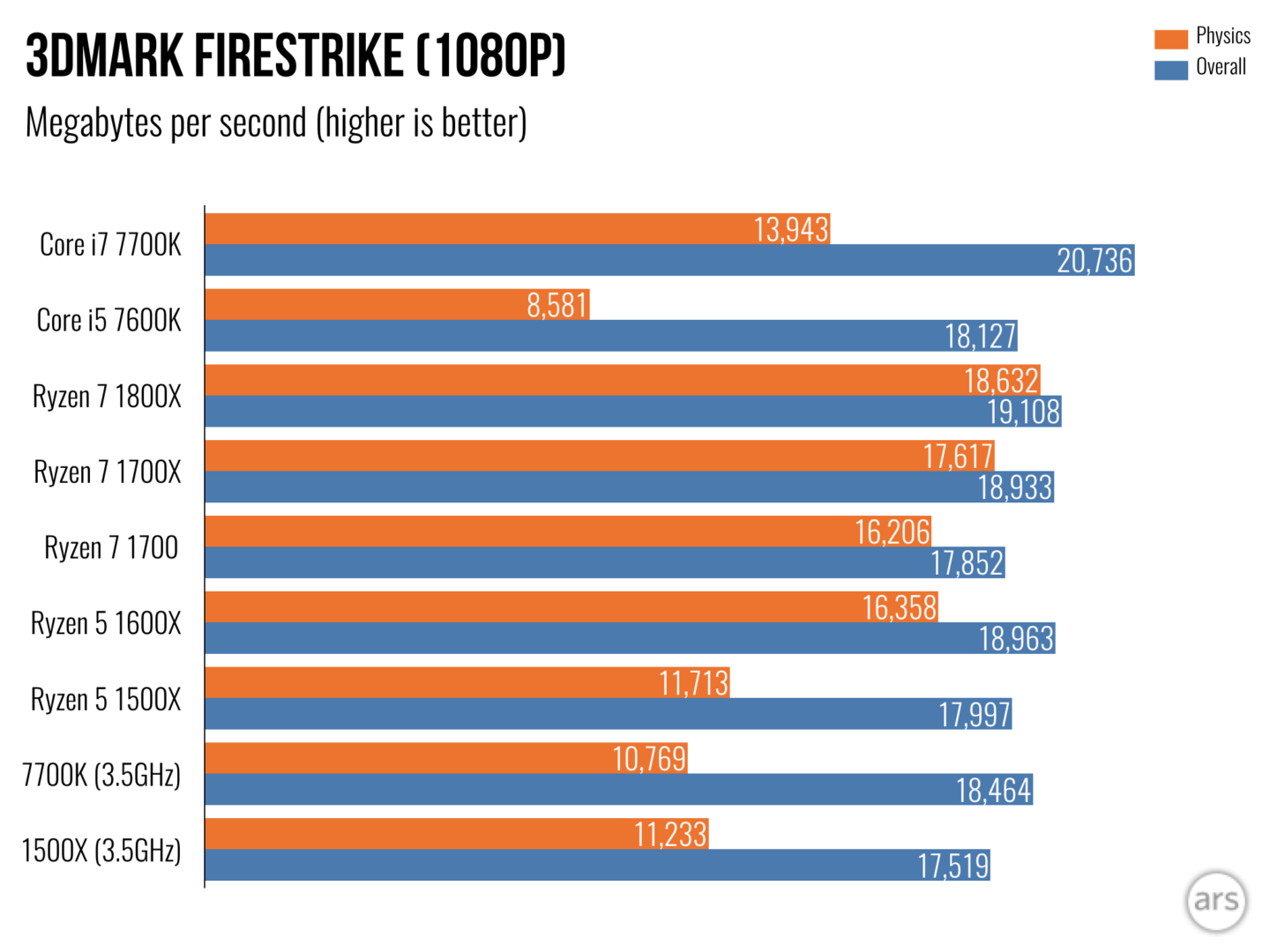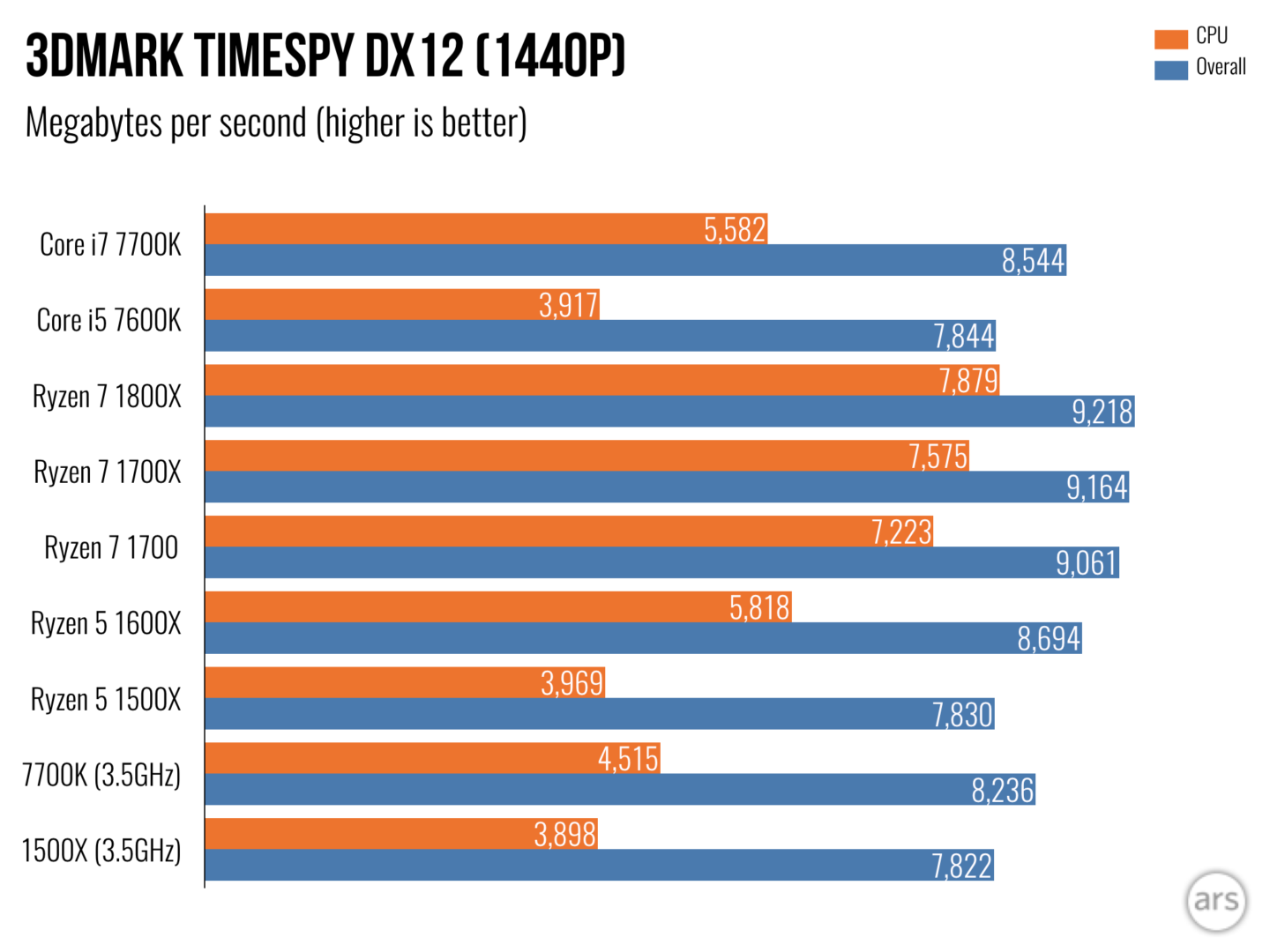I was browsing Facebook and found this advertising link from arstechnica.com. I know some of you like this website. It has a range a performance and gaming revisits. Although, they only use Ryzen RAM at 2933MHz on a Asus ROG Crosshair VI Hero X370 motherboard, which is known to run 3200MHz RAM stable. Their Intel test set up has RAM running at 3000MHz. I don't agree with some of the conclusions the reviewer makes from these tests, but we can make our own opinions from the graphs.
Ryzen 5 review: AMD muscles in on Intel’s i5 sweet spot
Gaming performance still an anomaly, but the Ryzen 5 1600X and 1500X are great chips.
MARK WALTON (UK) - 5/8/2017, 9:35 AM
Note the performance of the 1500X@3.5 when compared to i7!
1500x actually beats the i7 in multithread performance here at 3.5GHz
They i7 barely manages a 12 point lead over the 1500x at 3.5GHz in single thread performance. I expected the difference to be much more pronounced considering all the talk about Intel's superior IPC.
Look at the low memory scores here on geek bench with Ryzen compared to Intel! There is definitely a memory deficit affecting Ryzen performance. I think most of have seen this at release, and it continues in Geek Bench 4 scores. This expresses itself in games as well.
"That said, picking the right CPU isn't a binary decision. Clearly, in production applications that make use of multiple cores, the 1600X offers a distinct advantage over a 7600K. Not only are there two extra physical cores, but SMT allows for a total of 12 threads. Render times in applications like POV Ray are dramatically improved—the 1600X is 43 percent faster than the 7600K, and 29 percent faster than the 7700K—while Handbrake encoding is 40 percent faster, and Cinebench is nearly 50 percent faster. When it comes to crunching numbers, Ryzen is an absolute monster."
"Yet, when it comes to gaming, Ryzen begins to falter. The physics scores in 3DMark's Firestrike benchmark highlight how much better Ryzen is at raw number crunching, with the 4C/8T 1500X even beating Kaby Lake at the same clock speed. But the overall score is disappointing, if at least higher. This disparity continues through to retail games. In Rise of the Tomb Raider the difference at 1080p is stark: 128FPS for the 1600X versus 169FPS for the 7600K. Under DX12, the disparity increases further to 105FPS versus 170FPS. There are similarly confusing results for Total War: Warhammer—a notoriously CPU-bound game—and Hitman, both of which are AMD-backed titles."
He picks games that Ryzen doesn't perform well in without showing games that Ryzen does perform well on, which I believe shows favoritism towards Intel in an attempt to show more greater disparity in gaming with Ryzen. One could easily use Crysis 3 and show a huge disparity with Intel in this manner.
Final thoughts benchmarks including those for gaming show Ryzen to be a much stronger competitor than what is happening in practice with some titles. One thing I noticed in Geek Bench was how much lower Ryzens memory scores were. I can't help wondering if that is partially having the huge impact in gaming vs. gaming benchmarks. Also, I want to add that I've seen Intel have better FPS scores on Nvidia GPU's vs AMD GPUs, and this was tested with a 1080Ti. But when the 1600 is having 29-50% performance compared to Intel while still being able to provide the same gaming experience how can you not buy Ryzen over Intel.
"Today, the performance hit isn't make-or-break. Yes, the framerates are lower than Intel's, sometimes significantly, but in all cases things are more than playable. "
https://arstechnica.com/gadgets/2017/05/amd-ryzen-5-review-1600x/2/
EDIT Also, I want to add that I've seen Intel have better FPS scores on Nvidia GPU's vs AMD GPUs, and this was tested with a 1080Ti. Ryzen has better scores on AMD GPUs as opposed to Intel GPUs.














